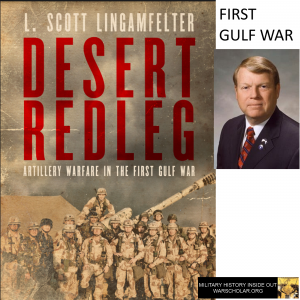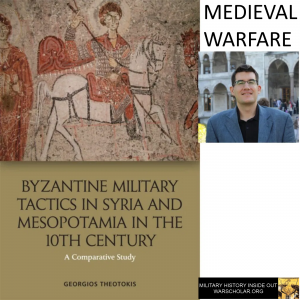Podcast: Play in new window | Download
Subscribe: RSS

Alex Mikaberidze Napoleonic Wars Interview
Interview Summary
Check out this book here https://amzn.to/308FVxH
Alex Mikaberidze has been studying and writing on the Napoleonic Wars and Middle Eastern history for many years. He recently completed a ten year project writing on the global impact of the Napoleonic wars. We spoke about the Napoleonic wars, Napoleon, the War of 1812, and the process of writing the book.
(THE AUDIO PLAYER IS AT THE BOTTOM OF THE POST.)
0:43 – Alex talks about how he became interested in the Napoleonic Wars.
2:32 – Alex talks about the languages he knows and its applications to this research.
3:33 – Alex talks about how his history of the Napoleonic Wars is different from other books on the subject.
9:07 – Alex talks about the various impacts of the Napoleonic Wars.
12:45 – Alex talks about the economics of the Napoleonic Wars.
16:58 – Alex talks about the importance of Napoleon in everything that happened in this period.
20:45 – Alex talks about why Napoleon made himself Emperor and what effects that had.
25:56 – Alex talks about how some Russians were happy that Napoleon made himself an Emperor.
27:06 – Alex talks about Napoleon not being a warmonger and his immense intellectual curiosity.
29:38 – Alex talks about Napoleon being a micro-manager.
32:46 – Alex talks about why the Russians did not surrender to Napoleon when he took Moscow.
38:41 – Alex discusses what might have happened if Napoleon had abolished serfdom in Russia.
39:31 – Alex talks about the military changes engendered by the Napoleonic Wars.
41:24 – Alex talks about changes in the Ottoman military.
43:22 – Alex talks about changes in the Iranian military.
45: – Alex talks about the political changes caused by the Napoleonic Wars especially with Spain and its colonies.
49:16 – Alex talks about what countries gained the most and lost the most from the Napoleonic Wars.
51:49 – Alex talks about British wins in India and Africa due to the wars. He discusses the rise of Russian power after the Napoleonic Wars.
54:58 – Alex talks about how badly France, Spain, and Portugal ended up after the wars.
56:49 – Alex talks about how he did his research and the main archives her used.
58:20 – Alex talks about the places he visited for his research.
1:01:00 – Alex talks about the tug of war between modernization and tradition during the Napoleonic Wars.
1:03:28 – Alex talks about Napoleon’s refusal to make a compromise deal in 1813.
1:05:51 – Alex about the writing and publishing process.
1:09:57 – Alex talks about research into the Louisiana Purchase and American and Russian competition in western North America.
1:14:33 – Alex can be found on facebook and on the Louisiana State University Shreveport website.
Links of interest
https://www.lsus.edu/alexander-mikaberidze
Contact Information
For more “Military History Inside Out” please follow me at www.warscholar.org, on Facebook at warscholar, on twitter at Warscholar, on youtube at warscholar1945 and on Instagram @crisalvarezswarscholar. Or subscribe to the podcast on Apple Podcasts | Google Podcasts | Stitcher | Spotify
Guests: Alexander Mikaberidze
Host: Cris Alvarez
Check out this book here https://amzn.to/308FVxH
As an Amazon Associate I earn from qualifying purchases.


 How US artillery dominated the Iraq military in the First Gulf War – Interview with L. Scott Lingamfelter
How US artillery dominated the Iraq military in the First Gulf War – Interview with L. Scott Lingamfelter